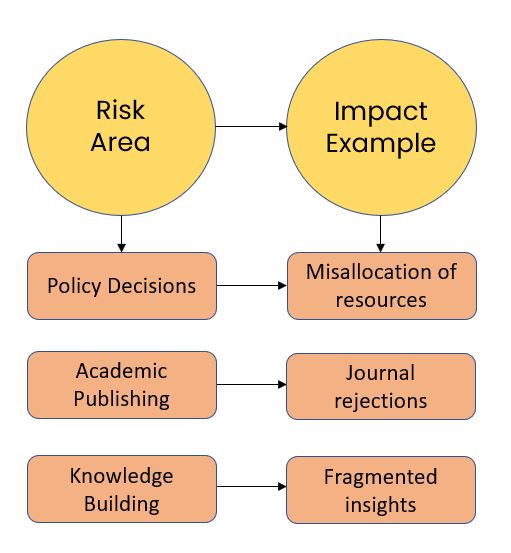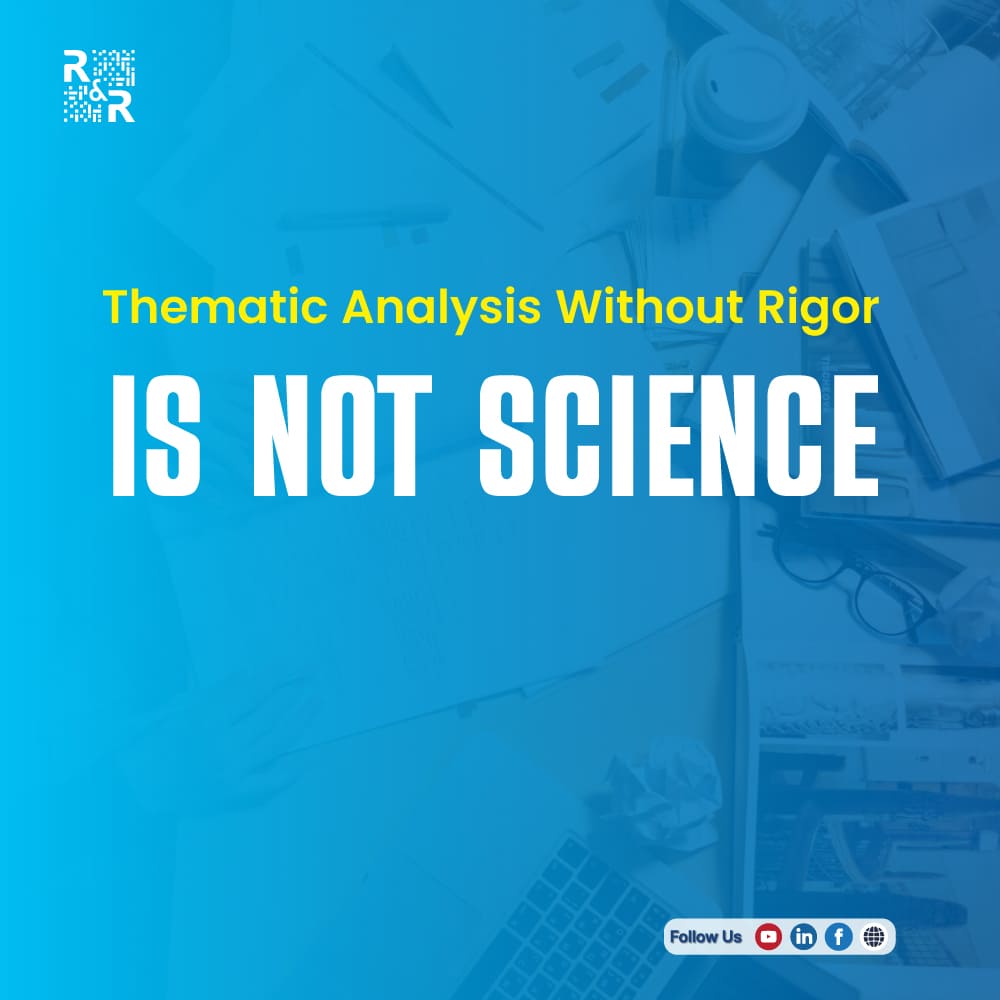Thematic analysis is one of the most widely used qualitative methods in social sciences, policy research, and applied studies. Its popularity comes from flexibility and accessibility. It enables researchers to uncover hidden meanings and identify themes across interviews, focus groups, and documents.
However, there is a critical challenge: without rigor, thematic analysis loses credibility. Instead of evidence-based insights, it risks collapsing into persuasive storytelling that cannot withstand methodological scrutiny. This undermines both academic integrity and real-world decision-making.
Why Rigor in Thematic Analysis Matters
Qualitative research plays a central role in shaping policies, programs, and social theories. Policymakers, NGOs, and academic journals rely on robust findings. Weak thematic analysis not only damages credibility but also leads to poor policy outcomes and wasted data potential.
Fact: According to Braun & Clarke (2006), thematic analysis must be systematic, transparent, and grounded in data to be valid.
Critical Issues Most Researchers Overlook
1. Weak Coding Practices
- Inconsistent or vague codes result in shallow themes.
- Without structured coding frameworks (inductive, deductive, or hybrid), themes are labels, not evidence.
- Solution: Use coding software (NVivo, ATLAS.ti, MAXQDA) to ensure systematic categorization.
2. Absence of an Audit Trail
- Credibility depends on documenting every decision.
- An audit trail should include coding steps, theme revisions, and data extracts.
- Reference: Lincoln & Guba (1985) emphasize audit trails as key to research trustworthiness.
3. Over-Interpretation of Data
- Stretching meaning beyond participants’ words reduces validity.
- Themes must be firmly grounded in raw data, not researcher imagination.
4. Lack of Reflexivity
- Researcher bias shapes interpretation.
- Reflexivity—acknowledging positionality and assumptions—ensures transparency.
- Example: A researcher studying gender bias must reflect on their own standpoint.
Risks of Poor Thematic Analysis
- Policy Risks: Weak themes can misguide social interventions.
- Academic Credibility: Journals now demand transparency and rigor.
- Lost Opportunities: Weak analysis reduces rich qualitative insights to anecdotes.

Figure: Risks of Weak Thematic Analysis, Source: Adapted from Braun & Clarke (2006)
How to Ensure Rigor in Thematic Analysis
At Research & Report Consulting, we transform thematic analysis into a robust, verifiable process through:
- Systematic Coding – Apply structured frameworks consistently.
- Transparent Audit Trails – Document all coding decisions.
- Grounded Interpretation – Base themes directly on participant voices.
- Reflexivity Practices – Acknowledge researcher influence explicitly.
- Replicability – Provide methodological clarity so others can verify findings.
Final Thought
Thematic analysis is powerful when conducted with rigor. It can transform lived experiences into trustworthy evidence that shapes policy, practice, and theory. Without rigor, however, it collapses into anecdotal storytelling.
What steps do you take to ensure rigor in your qualitative research? Share your thoughts in the comments.
References
- Braun, V., & Clarke, V. (2006). Using thematic analysis in psychology. Qualitative Research in Psychology, 3(2), 77–101.
- Lincoln, Y. S., & Guba, E. G. (1985). Naturalistic Inquiry. Sage Publications.
- Nowell, L. S., Norris, J. M., White, D. E., & Moules, N. J. (2017). Thematic analysis: Striving to meet the trustworthiness criteria. International Journal of Qualitative Methods, 16(1).

